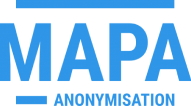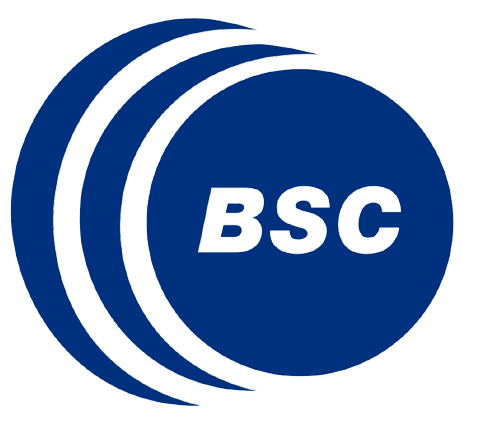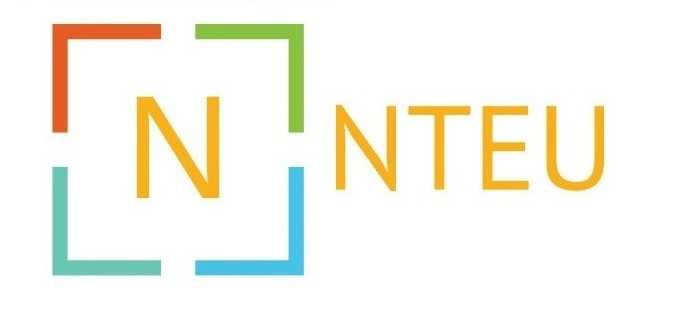MONOLINGUAL DATASETS FOR LLMs
Tired of sifting through endless amounts of open-source data in multiple languages, struggling to find the information you need?
Pangeanic & Monolingual Datasets for LLMs
With over 20 years of experience in data services and more than a decade developing AI training solutions, we approach every project with precision. We have accumulated extensive experience in data collection and testing through our involvement in several EU R&D projects and national R&D initiatives as an AI Lab. Each collection is carefully evaluated, and a tailored set of rules is created for our experts to manage the process — from sourcing and classification to annotation and QA.
In 2020, we announced we had reached 10Bn parallel sentences in Slator in 84 language pairs. Our data collection and custom model building journey continue!!
AI & Large Language Model projects
We not only talk the talk but also walk the walk. Our datasets for LLMs service is also used by our machine learning engineers to build different types of models for clients such as the Spanish Inland Revenue Service (Tax Office), automobile manufacturers, financial institutions, etc.
-
Catalan LLM: we partnered with the Barcelona SuperComputing Center (BSC) for the provision of corpora in Catalan, bias detection mechanisms, hate speech detection, data annotation and data labeling
-
Spanish LLM: provision of data for the building of the next-generation Large Language Model, containing input from the National Library and several sources
-
Knowledge Extraction: we build a model for the 4th largest bank in Spain (Bankia) to extract client and contract details information at scale from contracts, cutting down manual processing 90%
-
Data Classification: after applying OCR in classified law enforcement forensic evidence
-
Machine Translation: we led the NTEU project to build custom translation models for European public administrations using big data repositories and part of our bilingual data collection; also helped Japanese conglomerate Omron with specific document translation models in a private SaaS and news agency EFE
-
Anonymization: we led and managed the European MAPA project. Data labelling and data annotation to create the first LLM-based open-source personal data anonymizer
In-Domain Monolingual Datasets for LLMs
A Large Language Model contains a vast amount of text data in a single language, carefully curated and cleaned to ensure maximum accuracy and efficiency. With our monolingual datasets, you can train your LLM to excel in a specific language, improving its performance and capabilities.
But that's not all. Our monolingual data also offers a number of benefits, including:
Improved data quality
By focusing on a single language, we can ensure that our data is of the highest quality, with minimal errors and inconsistencies.
Increased efficiency
With all data in a single language, you can streamline your training process, saving time and resources.
Better performance
Our monolingual data allows you to tailor your LLM to a specific language, leading to better performance and more accurate results.
We offer a variety of languages to choose from, so you can select the one that best fits your needs. Whether you're working on a project related to business, healthcare, technology, or any other industry, we have the right dataset for you.
Language Datasets for LLM
Our monolingual datasets for LLM is available in many languages, among them
- English
- Italian
- Russian
- Chinese (Simplified)
- Chinese (Traditional)
- Spanish
- Portuguese
- Indonesian
- Swedish
- Korean
- French
- Dutch
- Turkish
- Thai
- Japanese
- German
- Polish
- Arabic
- Hindi
- Catalan
Data collection services
We offer a continuous data so that you can rely on fresh, human-approved monolingual data for LLM training in a variety of languages and knowledge areas.
RLHF
Reinforcement Learning from Human Feedback (RLHF) is a machine learning approach that combines reinforcement learning techniques with human guidance to train an artificial intelligence (AI) agent. The goal of RLHF is to train an agent that can make decisions in an environment to maximize cumulative rewards.
One of the key benefits of RLHF is that it allows for more human-like choices to be made by the agent. By using human feedback to train the reward model, the agent is able to learn what humans prefer and make decisions accordingly. This can be particularly useful in situations where the environment is complex and there are multiple possible solutions to a problem.
Reinforcement Learning from Human Feedback is a powerful tool for training artificial intelligence agents to make decisions in complex environments.
By combining reinforcement learning techniques with human guidance, RLHF enables agents to learn what humans prefer and make more human-like choices. Its potential applications are vast and varied, and it is likely to play a significant role in shaping the future of artificial intelligence.
Order Now
Or contact us for custom orders and pricing at clients@pangeanic.com / (+1) 617 419 7145. We look forward to helping you achieve success with your LLM projects!
A Short Guide to Large Language Models
Large language models (LLMs) are a type of artificial intelligence (AI) designed to generate text. They are trained on massive datasets of text and code, and can be used for a variety of tasks, such as summarization, writing different kinds of creative content, answering questions in an informative way, and translation (although at a slower speed than neural machine translation and at higher cost). The addition of a series of chatbot-like features, Reinforcement Learning with Human Feedback to prune undesirable, and useful or unsafe responses, green lists of words, etc., give LLMs the appearance of understanding human queries and providing answers at scale.
One of the key challenges in developing LLMs is the need for large amounts of training data. This data is typically monolingual, meaning that it is all in the same language. This is because LLMs are trained to learn the patterns of language in a particular language, and monolingual data allows them to do this more effectively.
Benefits of Curated Monolingual Datasets in LLM training
Monolingual datasets can be used to build LLMs in a number of ways. First, it allows the model to learn the nuances of a particular language more effectively. Second, it simplifies the training process, as there is no need to worry about translating data from one language to another. Third, it can lead to better performance on tasks that are specific to a particular language, such as translation or question answering.
How is curated monolingual datasets used in the training of an LLM?
-
During pre-training: LLMs are typically pre-trained on massive datasets of text and code. As previously mentioned, monolingual data can be used to pre-train LLMs on a variety of tasks, such as language modeling, text summarization or question answering.
-
Fine-tuning: After training, LLMs can be fine-tuned on monolingual datasets to improve their performance on specific tasks, such as data classification or categorization or sentiment analysis.
-
Domain adaptation: LLMs can be adapted to new domains using monolingual data from that domain in order to offer specific and accurate information in a particular domain. For example, an LLM pre-trained on general-purpose text could be adapted to the healthcare domain using a dataset of medical texts, or it could serve as a knowledge repository for a software company, health and safety in food processing, or an automobile manufacturer.
-
Knowledge distillation: LLMs can be trained to emulate the behavior of other LLMs or expert systems using monolingual datasets. This can be used to create smaller and more efficient LLMs, or to transfer knowledge from one LLM to another.
Use Cases for Monolingual Datasets
Monolingual datasets can be used for a variety of tasks in the context of LLMs.
Question Answering (Chatbots)
One common use case is for training LLMs that will be used for question answering. In this case, the LLM is trained on a monolingual dataset of questions and answers in a particular language to interact with users in a natural and engaging way.The monolingual “questions and answers” dataset allows the model to learn the patterns of language in the target language, and to generate answers that are both accurate and informative.
Virtual assistants
LLMs can be fine-tuned on monolingual datasets to create virtual assistants that can understand and respond to user requests in a comprehensive and informative way.
Generation of creative content
Monolingual datasets can also be used for training LLMs that will be used for creating tools that can generate different creative text formats of text content, like poems, code, scripts, musical pieces, email, letters, etc. Generative LLMs can also be used in summarization or text completion.In this case, the LLM is trained on a dataset of text in the target language that is representative of the type of creative content that the model will be generating. This allows the model to learn the patterns of language in the target language, and to generate creative content that is both fluent and engaging.
Translation Models
Another use case is building LLMs as translation models. In this case, the LLM is trained on a dataset of text in both the source and target languages. This allows the model to learn the patterns of language in both languages, and to generate translations that are both accurate and fluent. However, please note that the nature of an LLM (particularly those in the Generative Pre-Trained Transformers family, or GPT) is to be generative so they can be verbose and sometimes offer quite free versions.
Remember!
Monolingual dataset is the essential resource for training LLMs. It allows the model to learn the nuances of a particular language at a massive scale, and it does so effectively, simplifying the training process, which can lead to better performance on tasks that are specific to a particular language.









